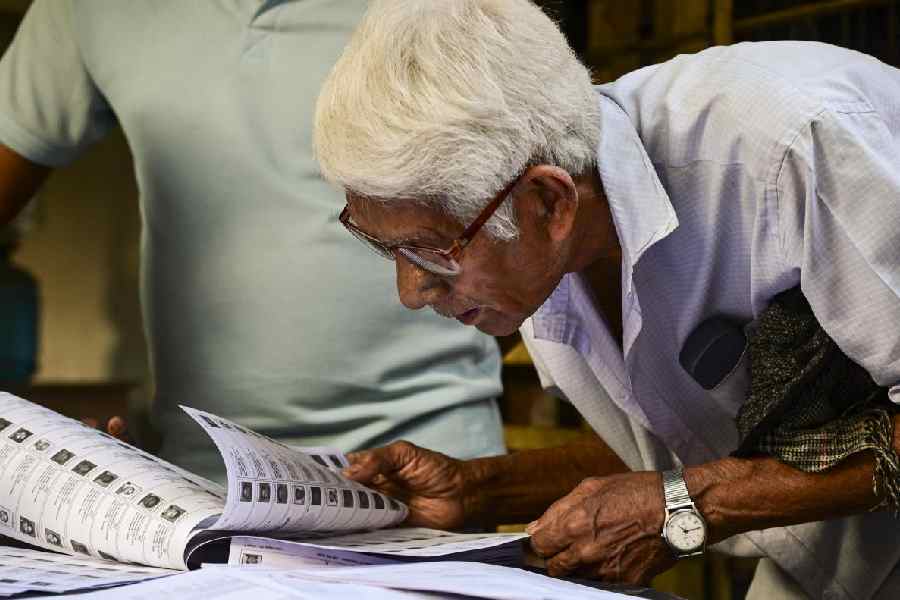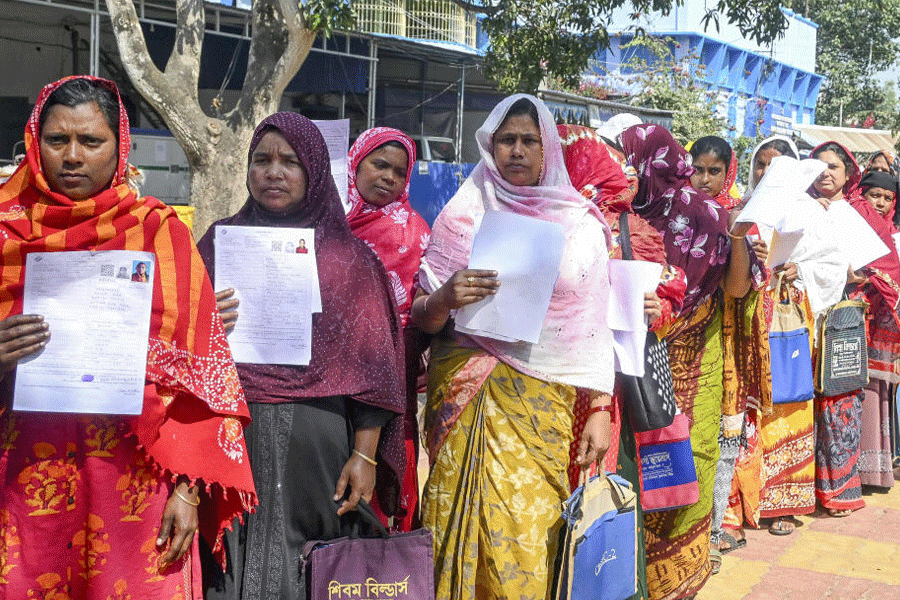Calcutta: Hundreds of men are up in arms so that women do not get a comfortable commute between home and work.
Ever since the railways introduced an extra coach reserved for women on local trains in the Sealdah division, a section of male passengers has resorted to agitations and rail blockades. Their grudge — their space on the trains is shrinking.
Railway officials have denied the allegation by sharing numbers. But gender rights activists said the problem stemmed from a deep-rooted bias that men have against working women.
From March 24, the Sealdah division introduced an extra coach for women on local trains in the division. Before that, a compartment each at the front and back was reserved for women. After the change, half of a compartment each at the front and back have also been earmarked for women.
Since then, a series of agitations have taken place. On Thursday, train services in the Baruipur-Diamond Harbour section were disrupted. A day earlier, similar protests were reported from Mathurapur, Jaynagar and Dakshin Barasat in South 24-Parganas.
“Earlier, local trains in Sealdah had nine compartments. But since June 2024, the number has gone up to 12. On nine-coach trains, two coaches were reserved for women. Now, on 12-coach trains, there are three coaches reserved for women. So, the allegation that men’s space is shrinking is not true. Before, seven out of nine coaches were general. Now, nine out of 12 coaches are general,” said a spokesperson for Sealdah division.
“We witnessed huge overcrowding in earmarked ladies coaches causing regular inconvenience in boarding/deboarding which, in turn, was causing accidents and/or over stopping of locals at stations. Hence, in order to reduce congestion and improve overall operational efficiency, an additional ladies coach became mandatory,” said a formal communication.
The Sealdah suburban section connects Calcutta with its northern and southern suburbs. It is the lifeline for hundreds of thousands of people who commute between the city and their homes every day, providing the city with a large part of its workforce.
The division runs more than 900 local trains every day, on the Sealdah North and South sections. The daily passenger count ranges between 15 and 18 lakh, said railway officials.
A fourth of the count comprises women, they said.
The Sealdah South section, which connects Calcutta with places like Diamond Harbour, Canning, Lakshmikantapur, Sonarpur, Baruipur and Budge Budge, is the preferred route for hundreds of thousands of women who work as domestic help, ayahs, caregivers, nurses, factory workers, teachers and a host of other professions.
The railways have for the past couple of days shared several clips of women passengers saying how the extra compartment has eased their commute.
The divisional railway manager of Sealdah, Deepak Nigam, addressed a press conference on Thursday.
“We have taken this decision (to add an extra coach for women) on the basis of numbers. There is no bias. The number of working women is rising,” he said.
The railways has been pointing to overcrowded general compartments but women who travel on local trains said sexual harassment was almost routine in general compartments.
“I shudder to travel in general compartments. Some men are always trying to touch you inappropriately. I have missed trains because there was no space in the ladies compartments, despite knowing that I will be late for work,” said a 30-year-old woman from Baruipur, who works at a tailoring unit near Park Circus.
Amrita Dasgupta, director of Swayam, an organisation working with marginalised women, said women have the right to safe travel and dignity.
“The issue is not the crowd. The issue is safety. If you can guarantee safety in crowded trains, there is no need for this reservation. Till we don’t get there, it is needed,” she said.
Paramita Chowdhury, who works with Prayas, a trust for gender equity, would travel between Naihati and Dum Dum regularly till a few years ago.
“We would feel safe while travelling in women’s groups. Travelling alone in a general compartment at night was a nightmare,” she said.
She also said that a section of men were inherently opposed to the idea of working women. “The men agitating against reserved coaches for women are not only bothered about women laying claim to their space on trains. They feel threatened by the idea that the number of women at workspaces is rising,” she said.










